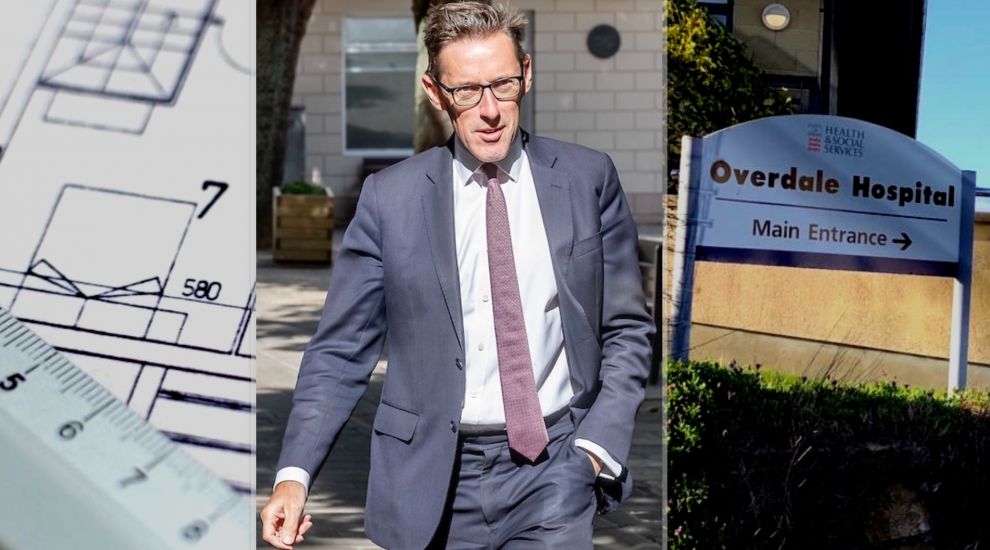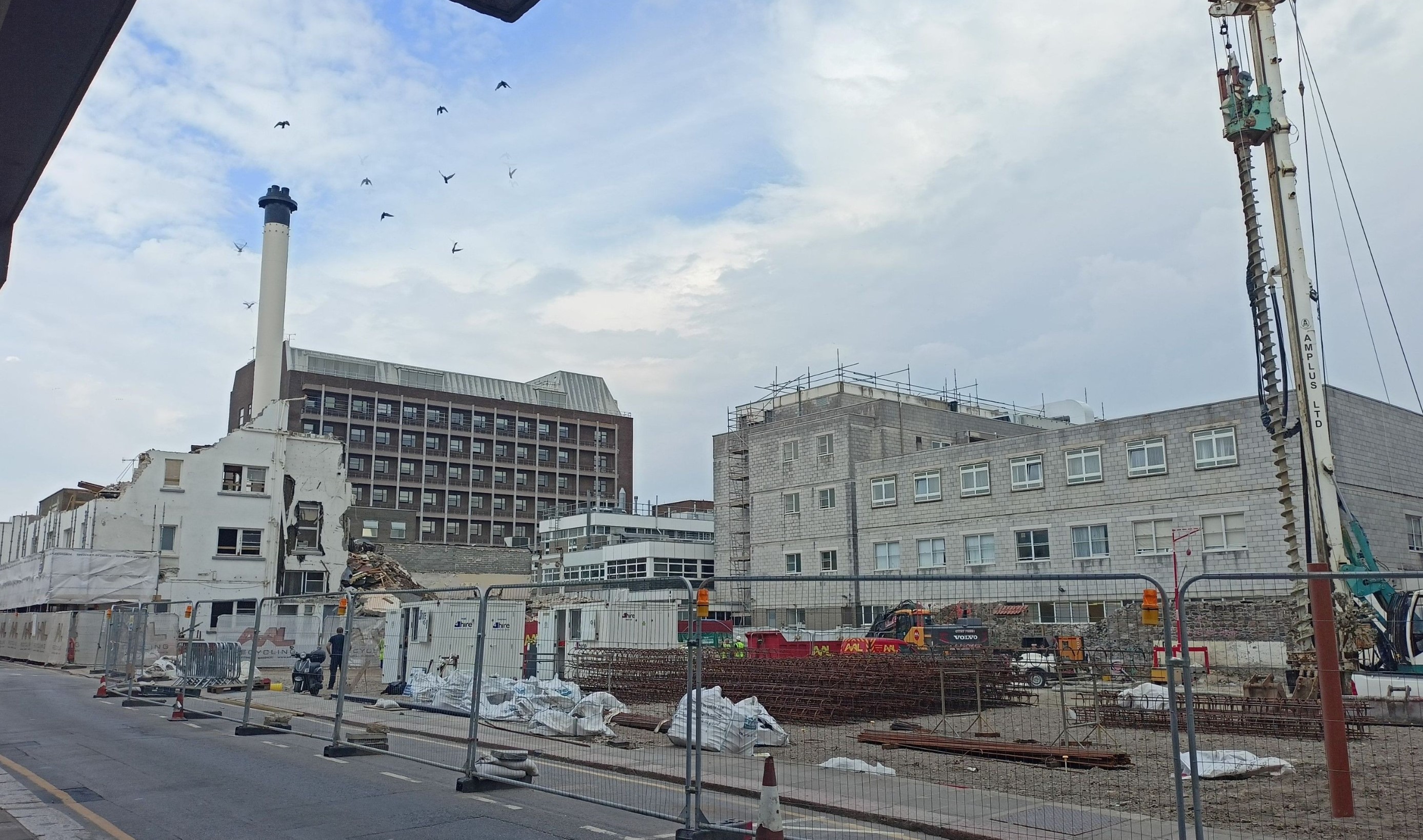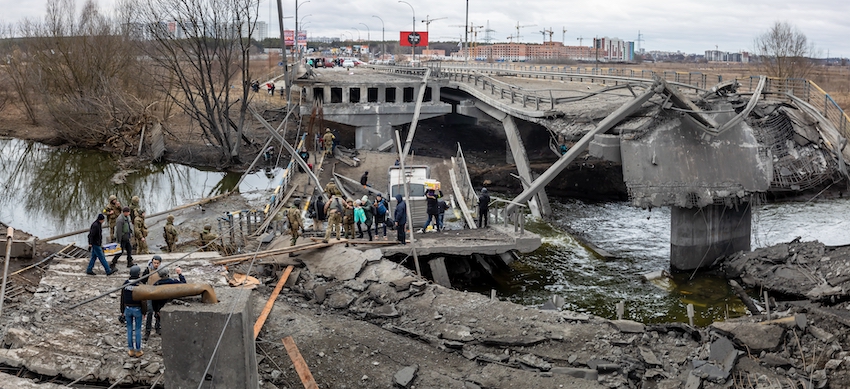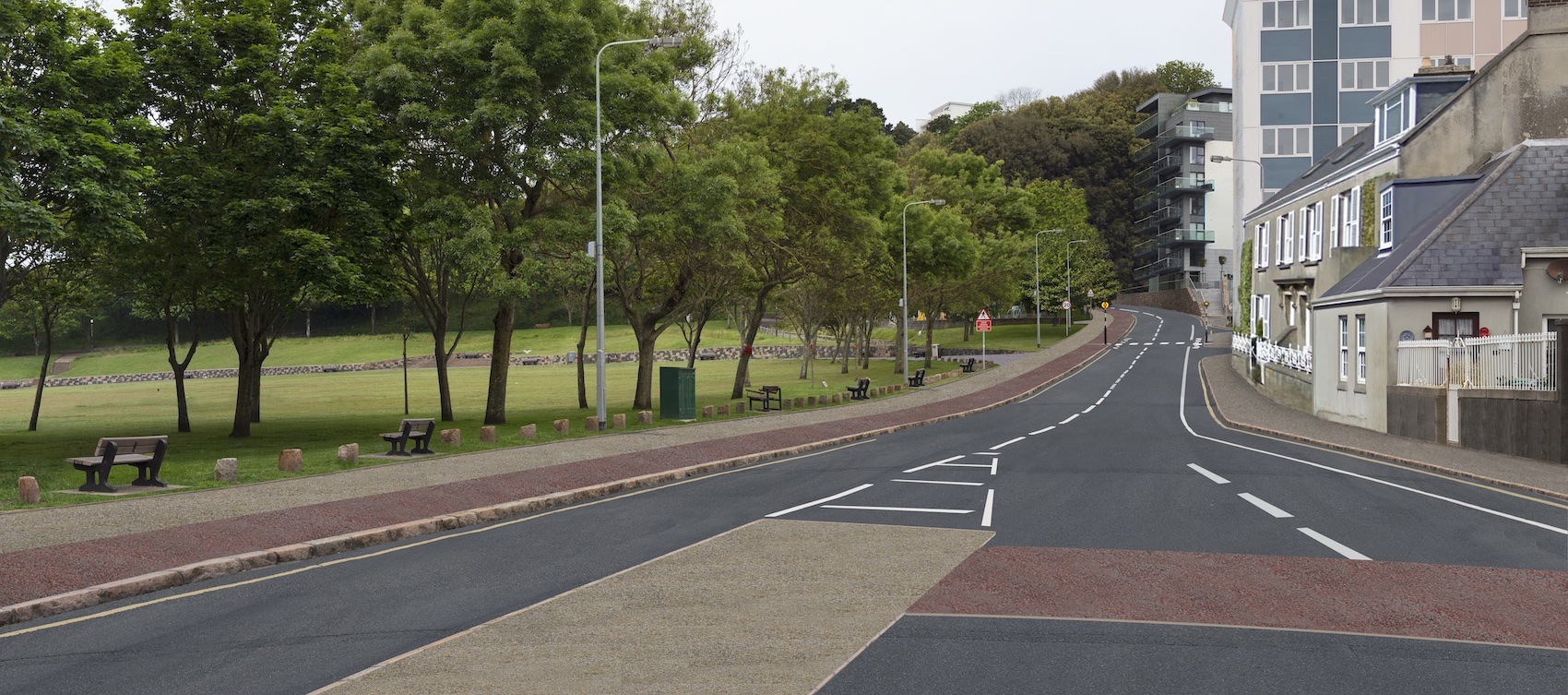


The Government has no obligation to continue with the Our Hospital contractor - and there could be an argument to use more than one contractor for the next phase, according to the Treasury Minister.
Deputy Ian Gorst said he does not believe that there should be any contractual dispute with a joint-venture partnership called Rok FCC JV - the ‘Design and Delivery Partner for the Our Hospital Project’ - because no delivery contract had been signed.
Speaking to Express last week, before the announcement of Her Majesty The Queen’s passing, the Deputy said that, although not being the lead politician on contract negotiations, he believed that the Government was not tied into signing a further contact with Rok FCC JV.
He said: “My understanding is, the previous Government signed a contract with Roc FCC JV, which said, ‘You have signed a contract to get us to this point, but the Government is not committed to signing a final contract with you.’”
He added, however: “There might be some issue around the strike price of the contract; that there is an assumption that Government has to sign this big contract with them, and I don’t think it does.
“I think whoever is going to do this [the contractor] needs to sharpen their pencil in a way they have not done yet. I also think we need to ask ourselves, in the current climate, is it right to be beholden to one big contractor who thinks they can dictate the price?”

Pictured: The Government is cancelling a project to build Andium homes in Kensington Place while the hospital review is taking place.
Asked if there was a risk of a contractual dispute if the Government chose to change the existing scope of the project, Deputy Gorst said: “There shouldn’t be, because we are not in any form of contract with them [Rok FCC JV] to sign a delivery contract.”
Deputy Gorst said that he supported the view, expressed recently by Infrastructure Minister Tom Binet, that the Our Hospital project would now cost more than the budgeted £804.5m agreed by the States Assembly last October.
It meant, therefore, that the project needed to be reviewed, with a fresh proposal taken to States Members for debate, he said.
Deputy Binet is carrying out that review, which will be completed before 20 October.
The original funding plan was to borrow £756m in the form of a bond, or bonds, which would be added to the Government’s £1 billion Strategic Reserve, or Rainy Day Fund.
The investment return on the reserve would cover the annual interest payment of £15m-£20m while the overall reserve would grow enough to pay off the capital at the end of the bond in 30-40 years’ time.
That was the assumption last year, based on a bond with a ‘coupon’, or interest rate, of 2.5%.
Last week, the Treasury Minister said that, while the Strategic Reserve was still forecast to grow over the next four decades by its historical rate of around four-and-a-half per cent, the hospital repayment model had altered.

Pictured: The war in Ukraine has had a significant impact on global financial markets.
“Last July, the Strategic Reserve stood at £1.05 billion and as of 5 September this year, it stood at £1.01 billion,” he said. “That is not surprising because that is a valuation in a fluctuating and difficult market.
“But, equally, long-term investment returns are still expected to be 4.6%, although we don’t expect any investment returns in 2022 and 2023. Again, that is not surprising.”
He added: “The thing that also changes is the 35-40-year borrowing-rate forecast last year was 2.5%. Now, that’s moved to 4.3%.
“The more fundamental problem with the hospital at Overdale, as we sit here, despite whatever the review comes up with, is that the States have given a democratic decision and approval for a hospital that will cost £804.5m and borrowing of £756m, and in a volatile market and with high levels of inflation, you couldn’t actually deliver that hospital at a contract price that would come in under that value.
“The review has to do a number of things: firstly, it has to clarify what you could build the hospital for; what the contract price would be.
“You then need to clarify what the costs spent to date are, and then you need to work out, if you reverted back to something at Gloucester Street, how much that would cost.
“With that, you would have to bear in mind the previous incarnation at Gloucester Street didn’t have planning permission and was coming in just under half a billion pounds six years ago, which surely could not be maintained in today’s climate.”
Deputy Gorst said that it was too early to know if building a hospital solely at Overdale was viable or not.
“That is what the review by Deputy Binet will help us to decide,” he said.
“What is not viable – which I think was clear before the election – is delivering what was proposed, and what ultimately had planning approval, within the cost envelopes that the States had agreed.
“So, you are left with looking again at Gloucester Street, looking at some combination of Gloucester Street and Overdale, or looking at the way you’re going to deliver Overdale: so, could you deliver it with a different number of partners for cheaper?
“Or, does it need to be the size it is up there, so perhaps take a floor off to save money? Do you really need to do the road in constrained financial times?

Pictured: The Treasury Minister has questioned whether Westmount Road needs to be widened and straightened in a time of rising costs.
“In the trade, it is called value engineering: it is looking at the project and getting it within a different budget. I think the review might look at some of that as well.”
The Treasury Minister said he did not know how much a redefined hospital project would cost.
“We don’t know until we’ve done the review,” he said. “You can get into a phoney war over ‘we just have to do it; we just have to do it because if we delay, it’s just going to cost more’.
“To a certain extent, that is true, but then you can equally argue that it’s got to such a big cost now.
“So, let’s say you get to the point where we can’t get a hospital at Overdale at this cost because of inflation. I don’t think much below £950m would be too far out of where it would be.
“You either think, well, that is such a big number that we have to do something different elsewhere, or you go through that value engineering process.
“Or you think that the market conditions are going to change into next year, and you wait, when you might get it way cheaper. You just don’t know because you are trying to forecast the future.
“What is more certain – and I think is the view of officials involved with the project – is that you wouldn’t go to market now to do that project. You wouldn’t sign a contract now to build at this current point in time because of that cost.”
Comments
Comments on this story express the views of the commentator only, not Bailiwick Publishing. We are unable to guarantee the accuracy of any of those comments.